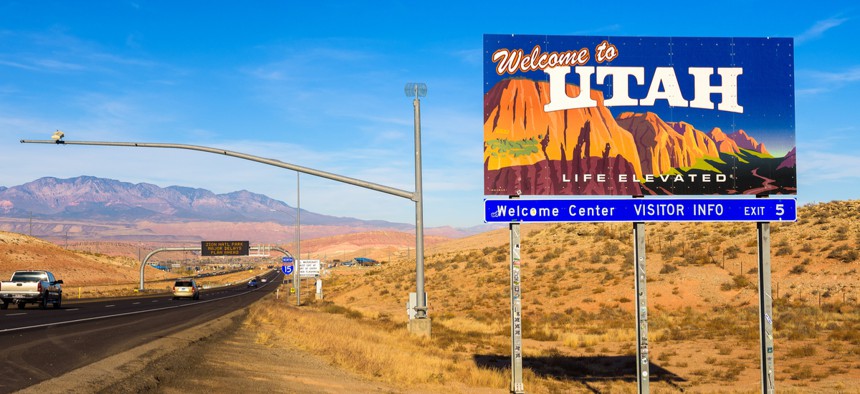Extreme Drought Conditions Prompt Statewide Emergency in Utah

Welcome to Utah Shutterstock
Record low water levels leads to an appeal to conserve supplies.
Utah Gov. Gary Herbert this week declared a state of emergency due to ongoing drought conditions.
The state’ winter snowpack was only 50-60 percent of normal levels this year and melted early, leading to a deficit in water storage supplies. And while the remnants of Hurricane Rosa pushed much needed moisture into the state and other parts of the southwestern U.S. earlier this month, Utah needs more precipitation. Herbert said conditions have lead to struggling agriculture and livestock production and increasing wildfire threats.
“Record low water levels and prolonged drought conditions have contributed to a formidable fire season, and continue to increase the threat of wildfires across the state,” Herbert wrote in his declaration, which is necessary to pursue state and federal resources for relief and resources.
The governor’s announcement included an appeal to Utah residents to conserve water, including fixing leaks, turn faucets off while brushing teeth and reducing shower times by at least one minute.
“The rainfall we have received helps, but the drought is at a level unseen for many years and will not be solved with a small series of storms. In some areas, the drought is at, or near, historic levels,” Herbert said in a statement. “Such difficult conditions are harming the quality of life and the livelihoods of many Utah families and agricultural producers.”
According to the U.S. Drought Monitor’s Oct. 9 update for Utah, nearly 100 percent of the state is experiencing moderate drought condition; around 76 percent of the state is seeing severe drought conditions; around 27 percent of the state is seeing extreme drought conditions; and 3 percent of the state is seeing exceptional drought conditions.

As this map shows, drought conditions in Utah are generally worse in the eastern and southeastern parts of the state.
Mike Styler, executive director of the Utah Department of Natural Resources, said in a statement: “This declaration opens doors for the Utah families and industries most harmed by this drought. Hopefully, it’s also an eye opener for the rest of us, and we’re encouraged to do our part.”
Michael Grass is Executive Editor of Government Executive’s Route Fifty and is based in Seattle.
NEXT STORY: Owning Real Estate Has Not Panned Out for Many African-Americans






